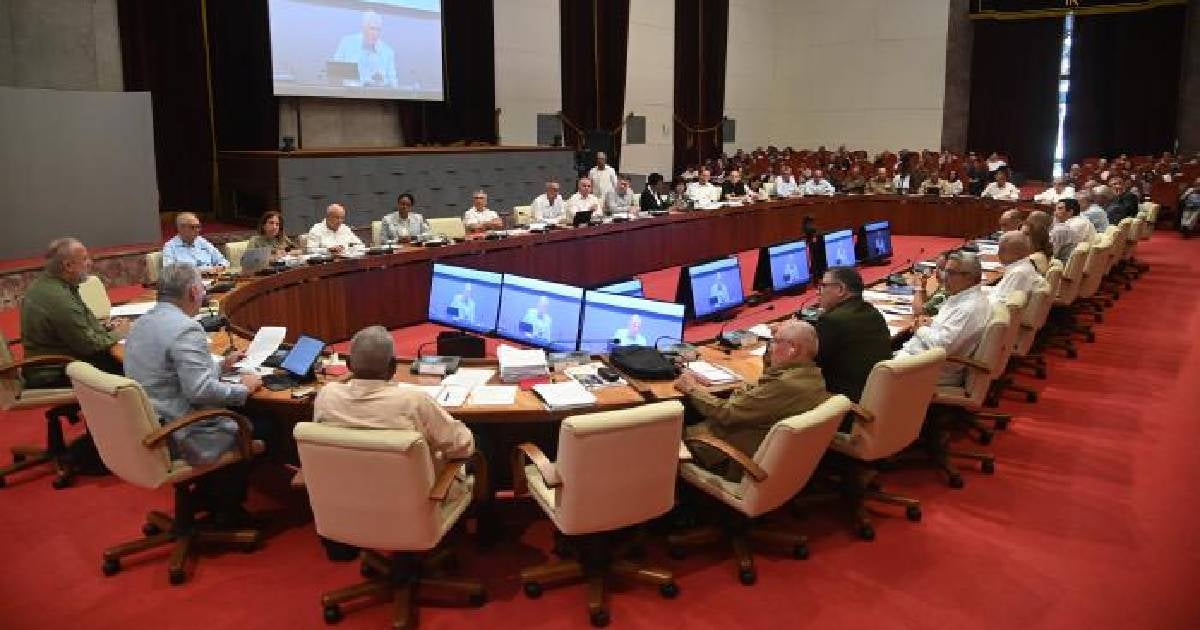The Cuban regime has officially admitted to the stagnation of the national economy during the latest Council of Ministers meeting, led by the ruler Miguel Díaz-Canel and chaired by Prime Minister Manuel Marrero. In this gathering of communists, they reviewed the economic results through March, highlighting unmet plans, declines in strategic sectors, and an ongoing deficit in the sugar industry.
Falling Short: Exports and Foreign Currency Revenues
According to the state-run newspaper Granma, Joaquín Alonso Vázquez, the Minister of Economy and Planning, acknowledged that while there was a slight increase in goods exports compared to the previous month, they still failed to meet the planned targets. The situation is even more dire in the services sector, with tourism plummeting by 22% compared to the same period in 2024, underscoring the deterioration of one of the country's economic pillars.
Recently, Cuba's Minister of Tourism, Juan Carlos García Granda, expressed optimism about the sector's recovery during the winter season of 2025-2026, despite a significant 29.7% drop in international visitors during the first quarter of the year. Speaking to the press after the closure of the FITCuba 2025 International Tourism Fair at the Tropicana Cabaret, García Granda claimed that the fair "exceeded expectations," not only organizationally but also in terms of participation, with over 1,500 foreign professionals and 2,573 nationals, including representatives from both state and non-state sectors.
Agriculture and Investments: Minimal Progress and Selective Prioritization
Ydael Pérez Brito, the Minister of Agriculture, admitted that agricultural production still falls short of meeting the population's needs, despite mentioning progress in contracting for the year. He emphasized that the figures remain well below what is necessary, confirming the ongoing food crisis.
Regarding investment plans, it was announced that only projects with guaranteed material and financial assurance will be prioritized, focusing on restoring electricity generation, increasing food production (specifically irrigation equipment), and ensuring public health, with works and equipment that secure the continuity of essential services.
"Economic Warfare" and Calls for Internal Control
Díaz-Canel, in a combative tone, asserted that Cuba faces an "unprecedented economic war" due to the tightening of U.S. sanctions, which, according to him, necessitates managing the economy under a "wartime economy" approach.
The dictator stressed the urgency of increasing foreign currency income and optimizing its use by boosting exports, substituting imports, strengthening national industry, promoting the banking process, and consolidating the state-run enterprise system.
The regime also called for better utilization of the domestic market as a source of economic development and integrating the non-state sector into both territorial and national planning. It acknowledged that the lack of control by state entities has led to "unacceptable issues" in relations with private actors.
A Diagnosis Without Deep Solutions
Although the discourse reiterated the need to "correct distortions," "demand results," and "evaluate the actions of the Government Program," the structural causes of deterioration—such as centralization, state inefficiency, and lack of profound reforms—were not addressed with genuine self-criticism.
Official statements, focused on external impacts and calls for collective effort, reflect a model that continues to rely on a planned and vertical economy, without concrete signs of opening or substantial transformation.
Cuba is grappling with a multidimensional economic crisis, including rampant inflation, prolonged blackouts, food shortages, and collapsed services. Although the government acknowledges the stagnation, it persists in applying failed formulas without taking responsibility for its share of the blame.
Key Questions About Cuba's Economic Challenges
What are the primary sectors affected by Cuba's economic stagnation?
The primary sectors affected include tourism, agriculture, and the sugar industry, which are experiencing significant declines and failing to meet planned targets.
How has the Cuban government responded to the economic crisis?
The government plans to prioritize investments with guaranteed resources, focus on increasing exports, substitute imports, and strengthen national industry while calling for better internal market utilization and integration of the non-state sector.
What are the criticisms of the Cuban government's approach to the economy?
Critics argue that the government is not addressing the structural causes of economic deterioration, such as centralization and state inefficiency, and continues to rely on a planned economy without meaningful reforms.
